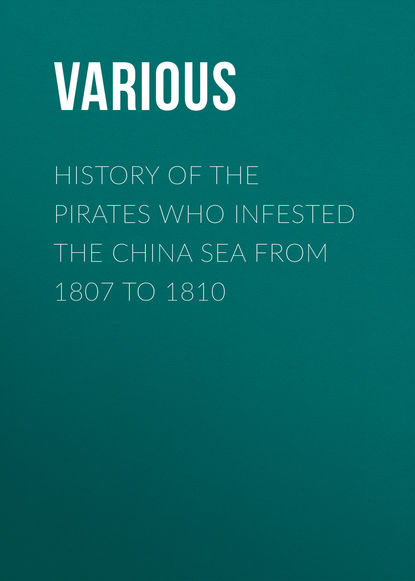По всем вопросам обращайтесь на: info@litportal.ru
(©) 2003-2024.
✖
History of the Pirates Who Infested the China Sea From 1807 to 1810
Автор
Год написания книги
2017
Настройки чтения
Размер шрифта
Высота строк
Поля
111
The Hoo mun, or Bocca Tigris.
112
We know by the "History of the Chinese Pirates," that these "wasps of the ocean," to speak with Yuen tsze yung lun, were originally divided into six squadrons.
113
In the barbarous Chinese-English spoken at Canton, all things are indiscriminately called chop. You hear of a chop-house, chop-boat, tea-chop, Chaou-chaou-chop, etc. To give a bill or agreement on making a bargain is in Chinese called chă tan; chă in the pronunciation of Canton is chop, which is then applied to any writing whatever. See Dr. Morrison's English and Chinese Dictionary under the word chop.
114
The following is the Character of the Chinese of Canton, as given in ancient Chinese books: "People of Canton are silly, light, weak in body, and weak in mind, without any ability to fight on land." The Indo-Chinese Gleaner, No. 19.
115
Joss is a Chinese corruption of the Portuguese Dios, God. The Joss, or idol, of which Mr. Glasspoole speaks in the San po shin, which is spoken of in the work of Yuen tsze.
116
Yuen tsze reported the memorable deed of the beautiful Mei ying at the end of the first book of his history.
117
The Chang lung vessels.
118
Probably the wife of Ching yĭh, whose family name was Shĭh, or stone.
119
The Chinese in Canton only eat a particular sort of rat, which is very large and of a whitish colour.











